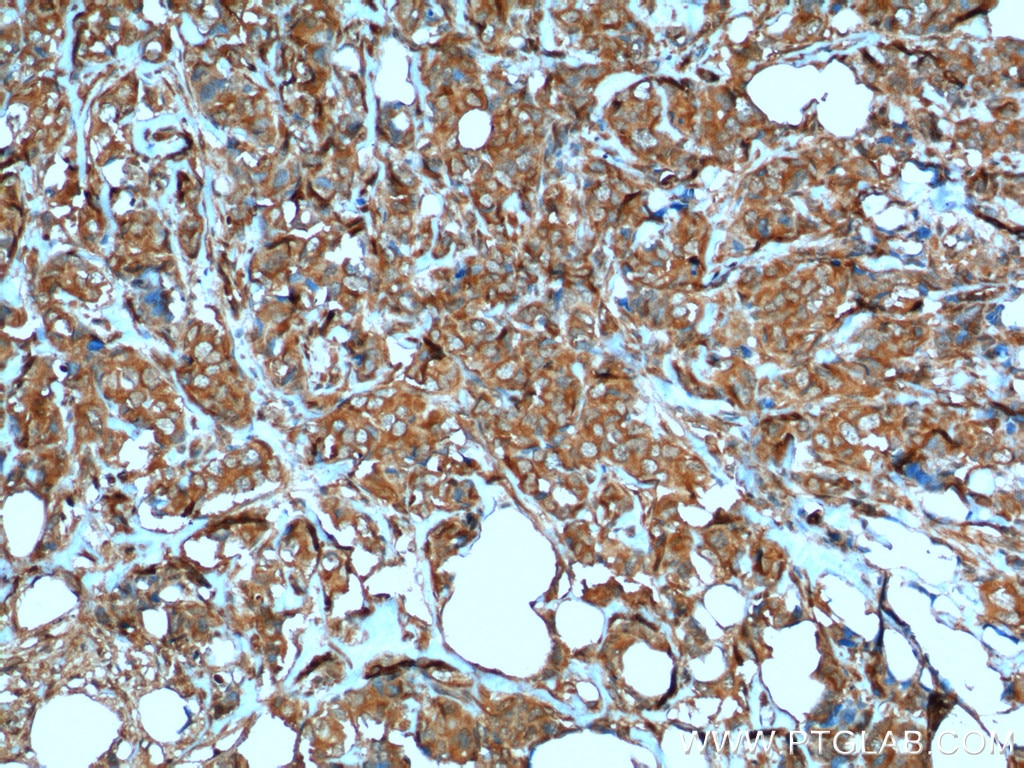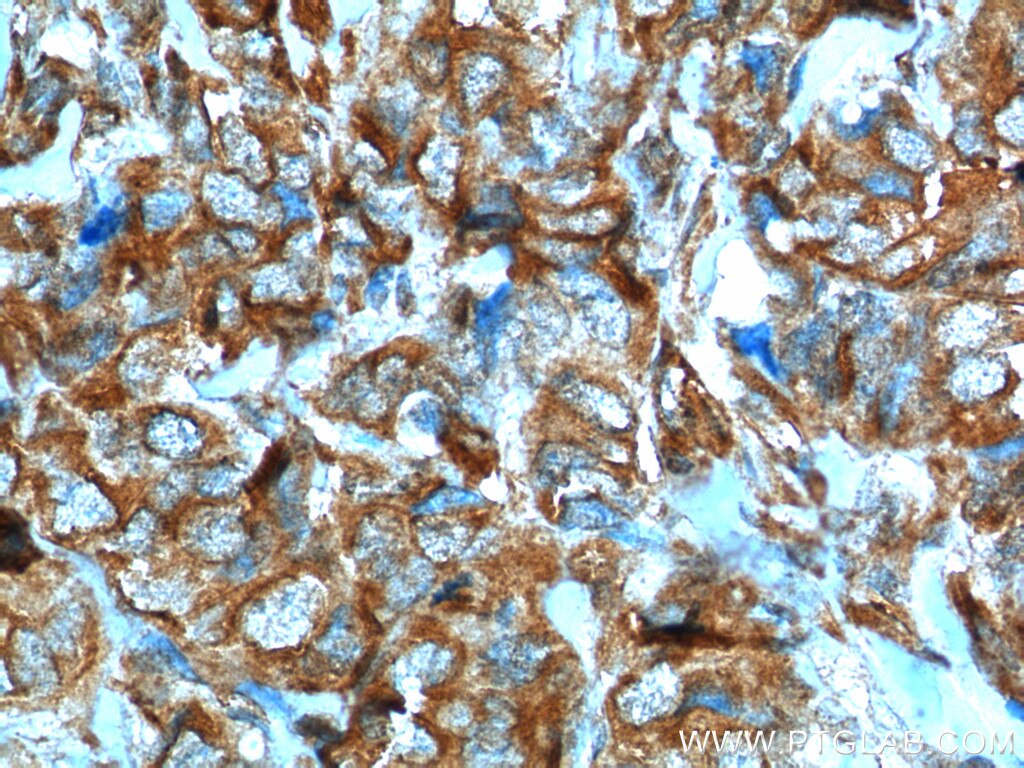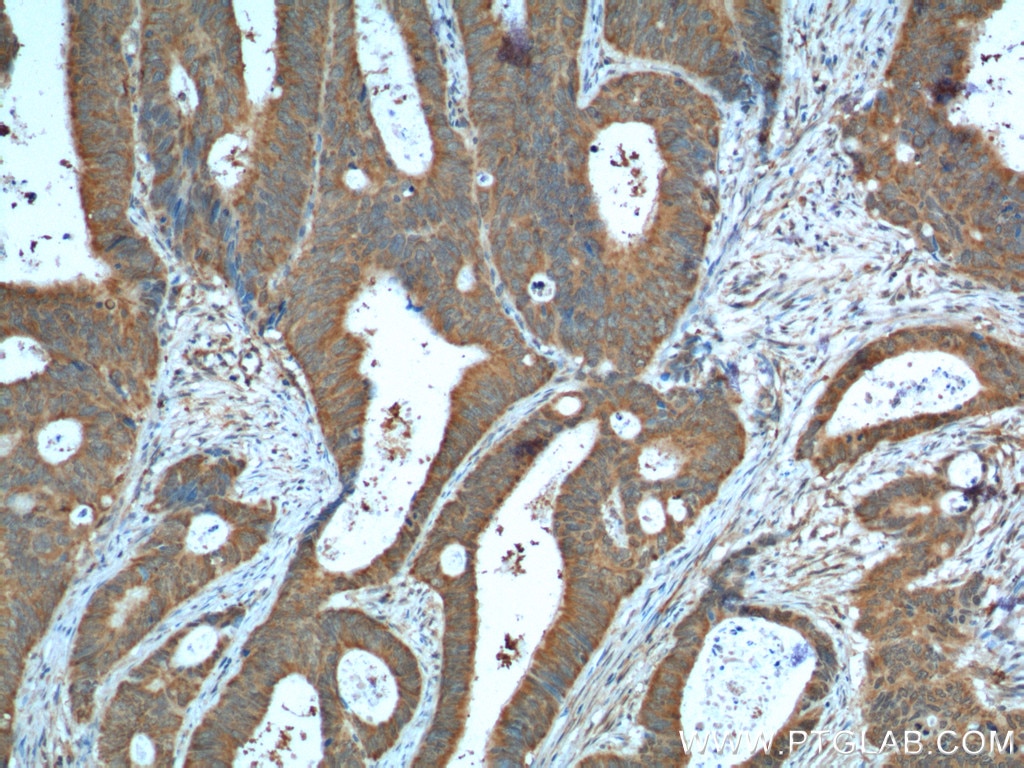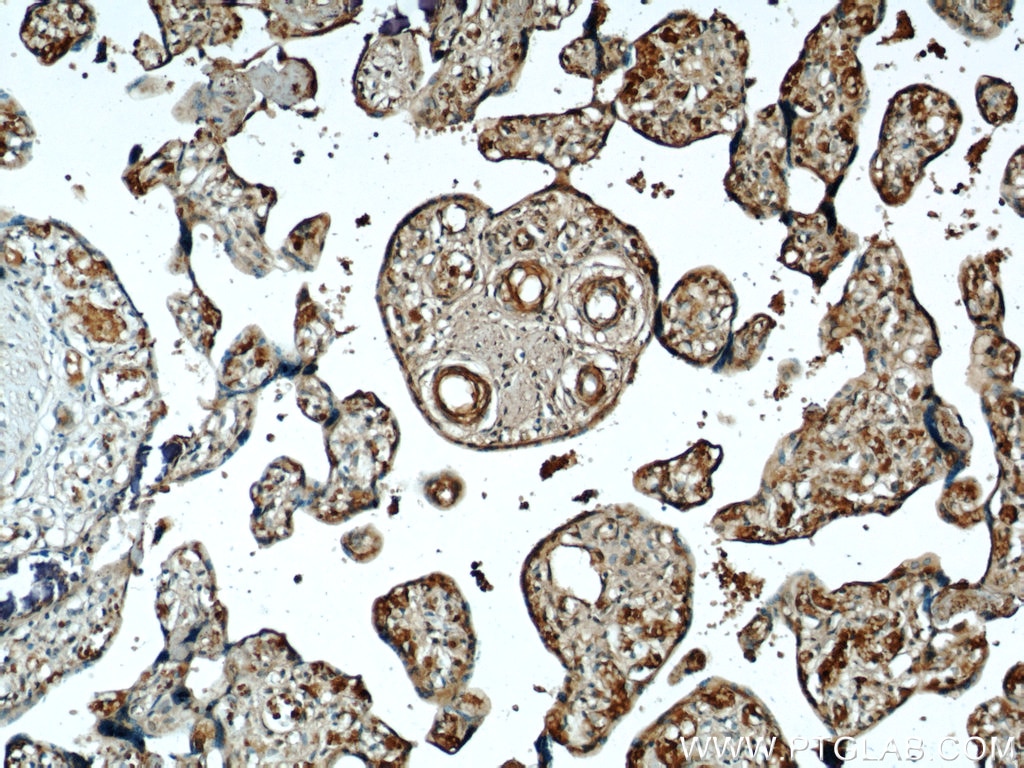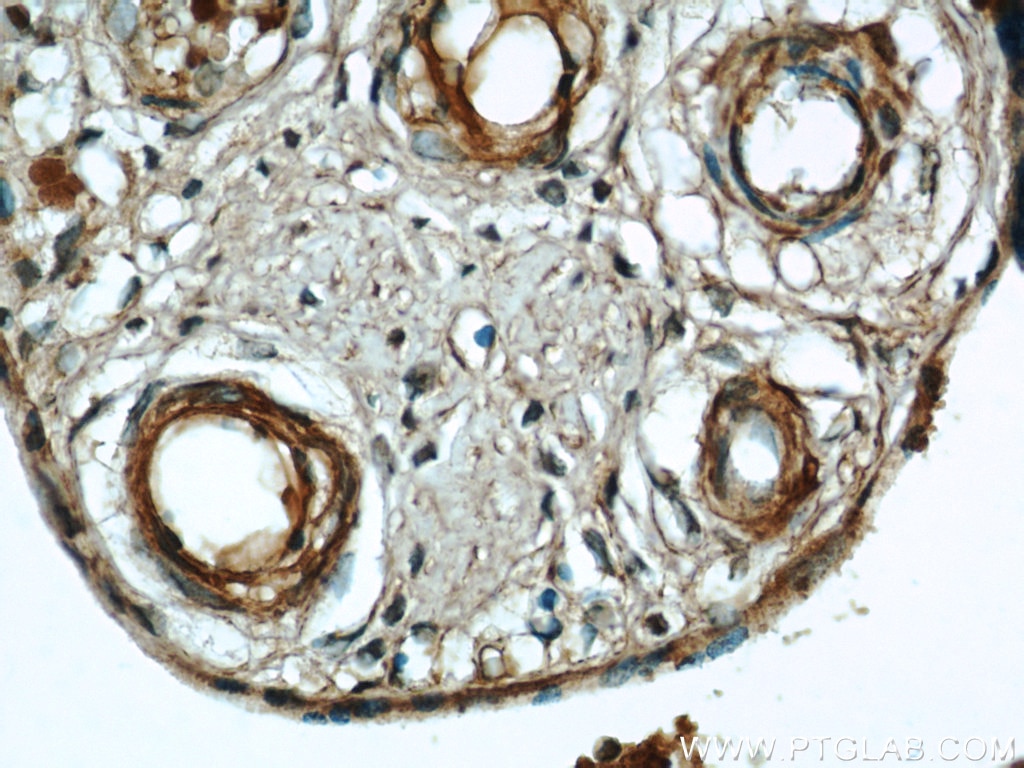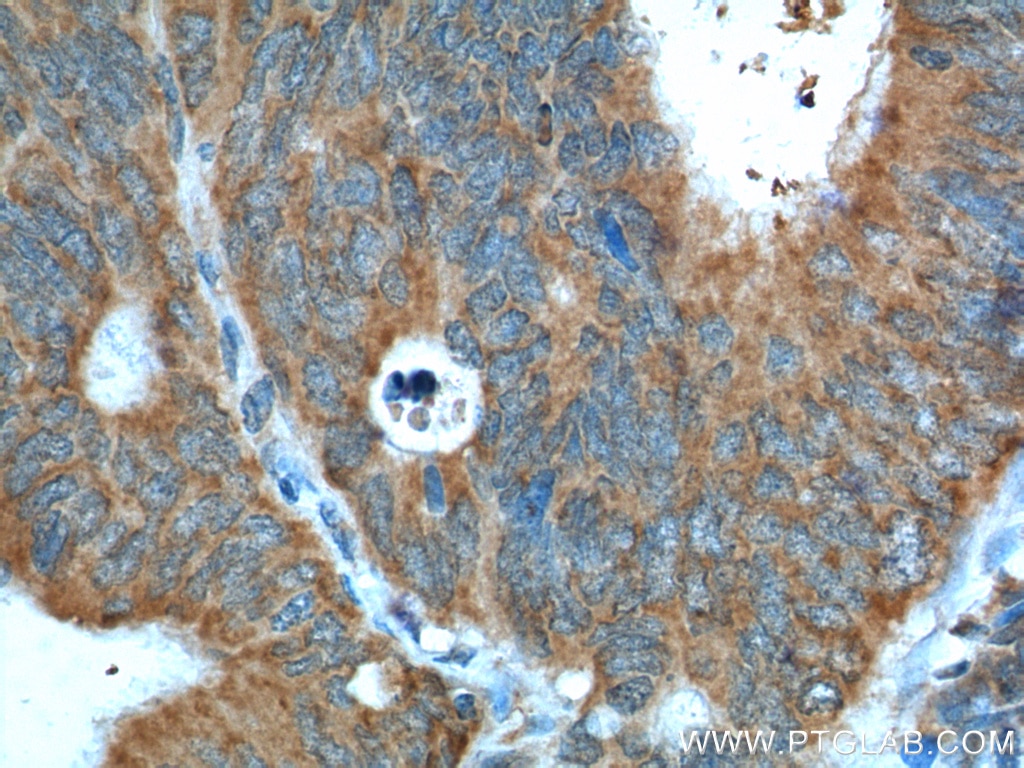VEGF Receptor 2 Polyclonal antibody
VEGF Receptor 2 Polyclonal Antibody for ELISA
Host / Isotype
Rabbit / IgG
Reactivity
human and More (1)
Applications
IHC,ELISA
Conjugate
Unconjugated
Cat no : 18975-1-AP
Synonyms
Validation Data Gallery
Tested Applications
Recommended dilution
| Application | Dilution |
|---|---|
| Sample-dependent, check data in validation data gallery | |
Published Applications
| IHC | See 1 publications below |
Product Information
18975-1-AP targets VEGF Receptor 2 in IHC,ELISA applications and shows reactivity with human samples.
| Tested Reactivity | human |
| Cited Reactivity | mouse |
| Host / Isotype | Rabbit / IgG |
| Class | Polyclonal |
| Type | Antibody |
| Immunogen | Peptide 相同性解析による交差性が予測される生物種 |
| Full Name | kinase insert domain receptor (a type III receptor tyrosine kinase) |
| Calculated molecular weight | 152 kDa |
| GenBank accession number | NM_002253 |
| Gene symbol | KDR |
| Gene ID (NCBI) | 3791 |
| Conjugate | Unconjugated |
| Form | Liquid |
| Purification Method | Antigen affinity purification |
| Storage Buffer | PBS with 0.02% sodium azide and 50% glycerol pH 7.3. |
| Storage Conditions | Store at -20°C. Stable for one year after shipment. Aliquoting is unnecessary for -20oC storage. |
Background Information
KDR, also named as VEGFR-2, FLK1 and CD309, is a receptor for VEGF or VEGFC. KDR which belongs to the protein kinase superfamily, has a tyrosine-protein kinase activity. The VEGF-kinase ligand/receptor signaling system plays a key role in vascular development and regulation of vascular permeability. In case of HIV-1 infection, the interaction with extracellular viral Tat protein seems to enhance angiogenesis in Kaposi's sarcoma lesions. KDR functions as the main mediator of VEGF-induced endothelial proliferation, survival, migration, tubular morphogenesis and sprouting. Mutations of this gene are implicated in infantile capillary hemangiomas.
Publications
| Species | Application | Title |
|---|---|---|
Kidney Int TNF-mediated damage to glomerular endothelium is an important determinant of acute kidney injury in sepsis. |
